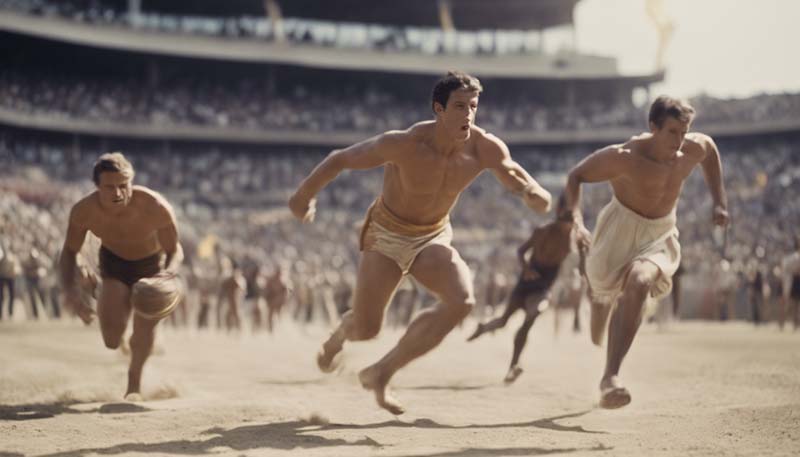The Ancient Olympics: The Birth of Modern Sports
Introduction
The Olympic Games are a major international event featuring summer and winter sports competitions in which thousands of athletes from around the world participate. The modern Olympic Games are widely regarded as the pinnacle of amateur sports, but their roots can be traced back to the ancient Olympics, which were held in Olympia, Greece, from 776 BC to 393 AD. This article explores the origins, significance, and evolution of the ancient Olympic Games and their influence on the modern sporting world.
Origins and Mythology
The ancient Olympic Games were more than just a sporting event; they were deeply interwoven with religious and cultural significance. According to Greek mythology, the games were founded by Heracles, a divine hero, as a way to honor his father, Zeus. The first recorded Olympic Games were held in 776 BC, but it is believed that they may have been held for centuries before that date.
Advertisement
Religious Significance
The ancient Olympic Games were closely linked to the worship of the Greek gods. The sanctuary of Olympia housed a massive statue of Zeus, which was one of the Seven Wonders of the Ancient World. The games were held during a religious festival in honor of Zeus, and athletes would offer sacrifices to the gods before competing.
Athletes and Competition
Athletes from all over the Greek world would travel to Olympia to compete in the games. Participation was limited to male citizens of Greek city-states, and the games were an important way for city-states to demonstrate their power and prestige. The original event was a stadion race, which was a short sprint of approximately 192 meters. Over time, more events were added, including long-distance runs, jumping, wrestling, boxing, and equestrian events.
Training and Preparation
Training for the Olympic Games was a serious endeavor. Athletes would train for months, often under the guidance of a coach, to prepare for the competitions. Training typically included a combination of physical conditioning, skill development, and adherence to a strict diet. The goal was to achieve the ideal balance of strength, speed, and agility.
Rules and Regulations
The ancient Olympic Games were governed by a set of strict rules and regulations. Athletes were required to swear an oath that they had trained for at least ten months before the games and that they would compete fairly. Cheating or breaking the rules could result in severe penalties, including fines or being banned from future games.

Olympic Truce
One of the most significant aspects of the ancient Olympic Games was the Olympic Truce. This was a temporary cessation of hostilities between city-states during the period of the games, allowing athletes and spectators to travel to Olympia safely. The truce was an important symbol of peace and unity in a time of frequent conflict.
Cultural Impact and Legacy
The ancient Olympic Games had a profound cultural impact on the Greek world and beyond. They were a major source of national pride and identity, and victories in the games were celebrated with great fanfare. The games also played a role in spreading Greek culture and values, as athletes and spectators from different city-states would come together to compete and socialize.
Revival of the Olympic Games
The modern Olympic Games, founded by Pierre de Coubertin in 1894, were inspired by the ancient Olympic Games. The aim was to promote peace, unity, and international cooperation through the medium of sports. The modern games have grown to include both summer and winter sports, with thousands of athletes from over 200 nations participating.
Conclusion
The ancient Olympic Games were a unique and important event in the history of sports. They combined athletic competition, religious ritual, and cultural celebration in a way that has left a lasting legacy. The modern Olympic Games, while vastly different in scale and scope, continue to honor the spirit of the ancient games by promoting the values of excellence, friendship, and respect.
Comments